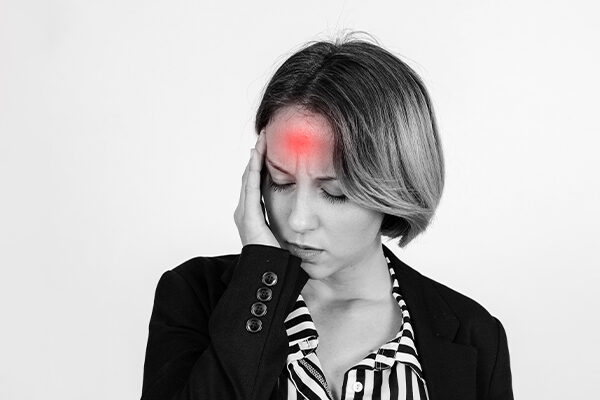Last Updated on September 21, 2023
World Alzheimer’s Day: Overview
Every 65 seconds, someone in the United States is diagnosed with Alzheimer’s disease. It is the most common form of dementia, a general term for memory loss and other cognitive impairments that are severe enough to interfere with daily activities. There is no cure for the disease’s clinical progression. However, currently, available treatments may temporarily help relieve the associated symptoms. Moreover, clinical trials near you in Michigan are also investigating potential treatment options for this cognitive condition.
World Alzheimer’s Day serves as an important reminder of the disease’s global impact. This neurodegenerative condition affects millions worldwide, posing immense challenges for individuals, families, and healthcare systems. In this article, we will look into Alzheimer’s disease, and explore its causes, risk factors, and management strategies, all while emphasizing the significance of World Alzheimer’s Day 2023.
Alzheimer’s Disease:
Alzheimer’s Disease Defined:
Alzheimer’s disease is a degenerative neurological disease characterized by cognitive decline, memory loss, and behavioral changes. Old age is the most significant known risk factor, and most of the Alzheimer’s patients are 65 years of age or older. If Alzheimer’s disease attacks someone under the age of 65, it is referred to as younger-onset Alzheimer’s. Early-onset Alzheimer’s disease is another name for younger-onset Alzheimer’s disease. People who develop Alzheimer’s disease at a younger age can be in the early, medium, or late stages of the disease.
Because it is the most common cause of dementia, World Alzheimer’s Day is an important opportunity to examine its profound consequences.
Pathology of Alzheimer’s Disease:
On World Alzheimer’s Day, we must acknowledge the disease’s pathological hallmarks — abnormal protein aggregates, such as beta-amyloid plaques and tau tangles, which gradually harm brain cells, impairing cognitive function and memory.
Alzheimer’s Disease Causes
Complex origins:
While the exact causes of Alzheimer’s disease are unknown, research suggests a complex interplay of hereditary, environmental, and lifestyle factors. World Alzheimer’s Day emphasizes the importance of continued research into these multiple causes.
Genetic predisposition:
Genetic mutations, particularly in the APP, PSEN1, and PSEN2 genes, increase the susceptibility to Alzheimer’s disease. World Alzheimer’s Day emphasizes the importance of genetic research for discovering potential preventive measures.
Alzheimer’s Awareness Day serves as an urgent reminder that millions of people worldwide are affected by Alzheimer’s disease, which is not a localized issue. To find a potential cure, efforts must be made to fully understand its causes.
Alzheimer’s Disease Risk Factor
Age as a Risk Factor:
World Alzheimer’s Day serves as a gentle reminder that growing older is the single most important risk factor for Alzheimer’s disease. As the global population ages, this risk factor becomes increasingly relevant.
Family History:
Another major risk factor is the family history of Alzheimer’s disease. On this day, we reflect on the consequences of genetics and the possibilities for early intervention for people who have a family history of the disease.
Cardiovascular Health:
Alzheimer’s disease risk has been found to be higher in people with poor cardiovascular health, which includes diseases like hypertension, diabetes, and high cholesterol.
Traumatic Brain Injury:
A history of traumatic brain injury, such as concussions, may increase the risk of Alzheimer’s disease.
Alzheimer’s Disease Diagnosis
The observance of World Alzheimer’s Day brings attention to the fundamental need for early diagnosis in managing the condition. Alzheimer’s disease diagnosis involves an extensive examination which includes the patient’s medical history, cognitive tests, imaging procedures (such as MRI and PET scans), and laboratory analysis. To accurately determine the extent of cognitive impairment and to enable timely intervention and support, neuropsychological evaluations are necessary.
Alzheimer’s Disease Management and Treatment
Although there is currently no cure for Alzheimer’s, early detection and effective management can significantly improve the quality of life for those who are affected. World Alzheimer’s Day promotes the significance of early intervention and support.
Medication:
Several drugs, including memantine and cholinesterase inhibitors, have been approved to treat the cognitive and behavioral symptoms of Alzheimer’s disease. In some situations, these medications may help in slowing the progression of the condition.
Lifestyle Changes:
Leading a healthy lifestyle can significantly impact how well Alzheimer’s disease is managed. Regular physical activity, a balanced diet rich in antioxidants, and mental stimulation through puzzles and games can all be beneficial.
Caregiver Support:
Alzheimer’s patients and their caregivers may experience physical and emotional exhaustion. World Alzheimer’s Day highlights the importance of providing support and resources for caregivers to help them cope with the challenges of caregiving.
Research and Clinical Trials:
Ongoing research into the causes and potential treatments for Alzheimer’s disease is essential. Participation in Alzheimer’s disease clinical trials can provide hope for new therapies and interventions.
It is important to note that the effectiveness of different management strategies varies from person to person, and early intervention is essential. As a result, education and awareness, as promoted on Alzheimer’s Awareness Day, are important for ensuring that people seek help as soon as they see any signs of cognitive impairment.
The Importance of World Alzheimer’s Day
Alzheimer’s Awareness Day is a significant global event celebrated on 21st September every year. It acts as a ray of hope in the struggle against Alzheimer’s. It not only raises information regarding the disease but also fosters a feeling of togetherness among those affected, including their families and communities.
Summary
World Alzheimer’s Day serves as an important reminder of the profound impact Alzheimer’s disease has on individuals, families, and communities worldwide. Understanding the origins, risk factors, and management strategies associated with Alzheimer’s disease helps us to take steps to decrease its prevalence as well as improve the lives of people affected.
On this day, we must remember that Alzheimer’s disease is not just an inevitable part of aging. Through early diagnosis, lifestyle modifications, caregiver support, and ongoing research, we can make a difference in the lives of those living with Alzheimer’s.
Let us use World Alzheimer’s Day 2023 as an opportunity to educate ourselves and others, to help those impacted by Alzheimer’s, and to strive for a world in which Alzheimer’s disease is better understood, managed, and, eventually, cured. We can make a difference in the fight against Alzheimer’s disease by working together.




